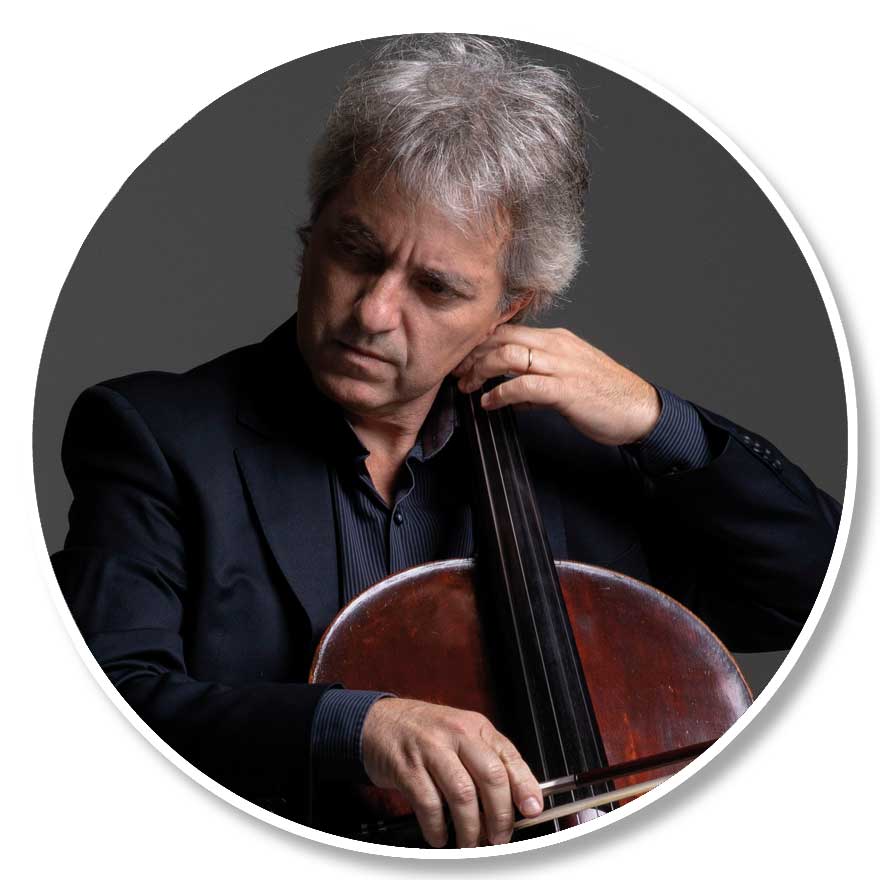
Hugo Pilger, cello
Hugo Pilger began his cello studies at the Arts Foundation of Montenegro with Milton Bock. In 1987 he went on to study in Rio de Janeiro with Marcio Malard and in 1994 in the class of Professor Alceu Reis. He graduated from the Bachelor's Degree in Cello Instrument at UNIRIO, where he completed his Master's Degree in Music in 2012.
As a soloist he performed in front of several orchestras, among them: Brazilian Symphony Orchestra, Municipal Symphony Orchestra of Campinas, Chamber Orchestra of the City of Curitiba, Symphony Orchestra of Bahia, Petrobras Symphony Orchestra, Ouro Preto Orchestra, National Symphony Orchestra, Orchestra of the Municipal Theatre of Rio de Janeiro, Orchestra of the Teatro São Pedro de Porto Alegre and Symphony Orchestra of Porto Alegre. In 2006 he made the debut in Brazil of the important work for cello and orchestra Tout un Monde Lointain by the French composer Henri Dutilleux and in 2009 the South American debut of the concerto for cello and orchestra Pro et Contra by the Estonian composer Arvo Pärt. Of the works that have been specially dedicated to him, the following stand out: Sonata nº 2 for Solo Cellocello by David Ashbridge, Oregano by Ricardo Tacuchian, Melorythmias nº 10 by Ernani Aguiar, Serenade pro Pilger by Maurício Carrilho, Reflections on the Oyster and the Wind by Wagner Tiso and Sortilégios by Marcos Lucas.
He had his first appearance as a soloist in 2007 on the album Latinidade da Orquestra Experimental UFOP. In 2012 he participated in the CD Alma Barroca within the project "Villa-Lobos e as Crianças" directed by Turibio Santos. In 2013 he participates in the recording of the album Oito Estações - Antonio Vivaldi and Astor Piazzolla of the Ouro Preto Orchestra. With pianist Lúcia Barrenechea released in two volumes (2013 and 2015) the album Presença de Villa-Lobos na Música Brasileira para Cello e Piano, a project that was among the three finalists of the Brazilian Music Award of 2015 and that contains the first record of the cello that belonged to the composer Heitor Villa-Lobos, a Martin Diehl of 1779. He recorded solo in 2016 the album Hugo Pilger interprets Ernani Aguiar with works for cello by composer Ernani Aguiar. With Guilherme Sauerbromm released in 2017 the album Ernst Mahle, the integral for cello and piano. In 2020 he released with Ney Fialkov the album Claudio Santoro: the integral work for cello and piano, which competed in the category "Best Classical Music Album" at the Latin Grammys of 2021.
In 2013 he published the work Heitor Villa-Lobos: the cello and its idiomatism, which aims to analyze and discuss the importance that the cello had in the trajectory of the composer Villa-Lobos, as well as identifies the main idiomatic elements that he applied and developed in his numerous compositions for the instrument.












